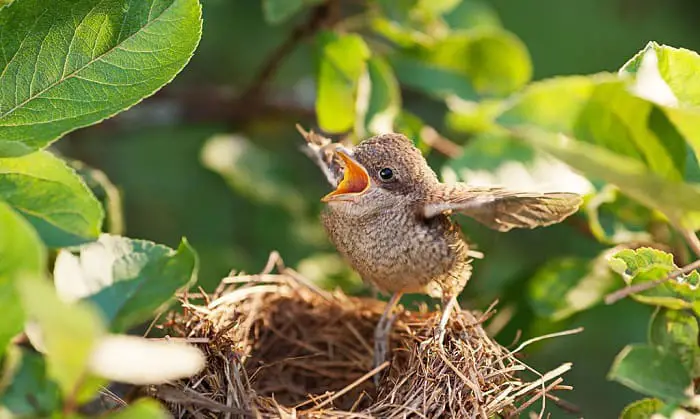As the seasons change, so does the behavior of wildlife around us. For bird enthusiasts, one of the most exciting times of the year is when baby birds hatch from their eggs and begin to grow and develop inside the nest.
However, at some point, these baby birds will leave the nest and venture out into the world on their own. But when do birds leave the nest? In this comprehensive guide, we’ll explore everything you need to know about when and why birds leave the nest.

What is Fledging?
The term “fledging” refers to the time when baby birds leave the nest and become independent. Fledging is a crucial stage in a bird’s life, as it marks the transition from dependence on their parents to independence. Fledging can take anywhere from a few days to a few weeks, depending on the species of bird.
When Do Birds Leave the Nest?
The answer to this question varies depending on the species of bird. Some birds, such as ducks and geese, leave the nest within hours of hatching. Others, such as songbirds, may remain in the nest for up to two weeks or more.
Typically, birds leave the nest when they are fully feathered and capable of flight or shortly thereafter. However, some birds, such as the California Condor, may take up to six months to fledge.
Why Do Birds Leave the Nest?
The primary reason birds leave the nest is to become independent. While in the nest, baby birds are entirely dependent on their parents for food and protection. Once they fledge, they must learn to fend for themselves and find their own food and shelter. Leaving the nest is also necessary for birds to develop the strength and skills they need to survive in the wild.
How Do Birds Learn to Fly?
Learning to fly is a crucial step in a bird’s development. While still in the nest, baby birds begin to exercise their wings, which helps to build strength and coordination. Once they fledge, they continue to practice flying and honing their skills. For some species of birds, such as the Bald Eagle, learning to fly can take up to 14 weeks.
What Happens After Birds Leave the Nest?
Once birds leave the nest, they continue to be cared for by their parents for a period of time. During this time, the parents will continue to provide food and protection for their young, teaching them important survival skills. Eventually, the young birds will become fully independent and will leave their parents to start their own lives.
Conclusion
The timing of when birds leave the nest varies greatly depending on the species of bird. However, the primary reason for leaving the nest is to become independent and learn important survival skills. Fledging is a critical stage in a bird’s life, and it is essential for their long-term survival in the wild.
